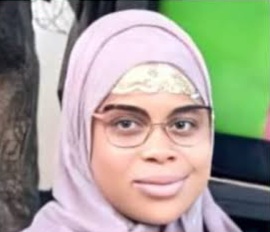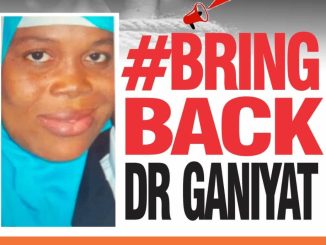
By Gideon Maxwell
October 30, 2024
Dr Ganiyat Popoola, an ophthalmologist at the National Eye Centre in Kaduna, Nigeria, kidnapped from her residence at the hospital’s staff quarters on December 27, 2023, has been freed.
The abduction also involved her husband and her nephew, Abdul-Mugniy.
In March 2024, Dr Popoola’s husband was released following the alleged payment of a ransom.
However, Dr. Popoola and her nephew remained in captivity.
The kidnappers had demanded a significant ransom, reported to be in the range of 40 million to 60 million naira (approximately £19,000 to £29,000 or $25,000 to $37,000).
Medical community response
In response to Dr Popoola’s prolonged captivity, the Nigerian medical community took a strong stance.
Doctors in public hospitals across the country initiated a seven-day nationwide strike in August 2024, demanding her immediate release.
This strike included a halt on even emergency medical services, highlighting the gravity of the situation and the solidarity among medical professionals.
Release and aftermath
After a gruelling 10 months in captivity, Dr Ganiyat Popoola and her nephew, Abdul-Mugniy, were finally released on the evening of October 30, 2024.
The release followed extensive negotiations with the kidnappers.
ALSO READ: Nigerian doctors threaten strike over Dr Ganiyat Popoola’s 8-month abduction
This incident is part of a larger and ongoing issue of rampant kidnappings in Nigeria, particularly in the northwestern region.
Criminal gangs frequently target individuals for financial gain, exploiting the vulnerabilities of certain areas such as the outskirts of Kaduna city.
Despite the existence of a law that criminalises ransom payments, which came into effect in 2022 and imposes a minimum prison sentence of 15 years, families often find themselves compelled to pay ransoms to secure the release of their loved ones.
To date, no one has been prosecuted under this law, highlighting the complexities and challenges in addressing this issue.
The release of Dr Popoola and her nephew brings relief to their family and the medical community, but it also underscores the need for enhanced security measures and effective legal enforcement to combat the scourge of kidnappings in Nigeria.


